Chile President Seeks Cross-party Help To End Street Violence
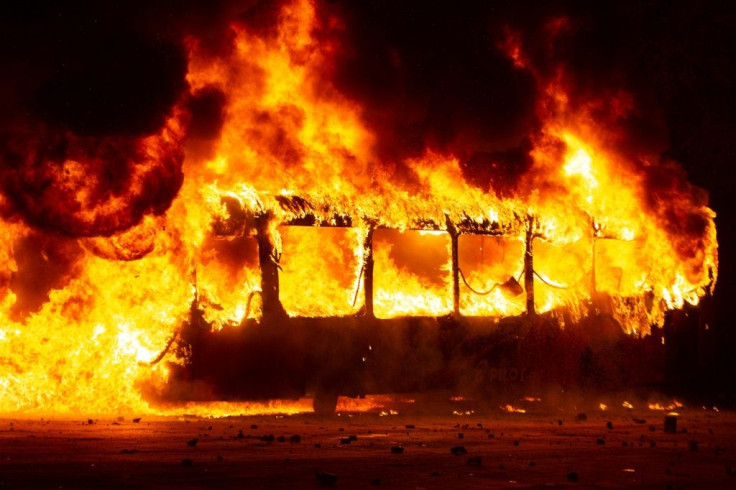
President Sebastian Pinera held a meeting with leaders of some of Chile's opposition parties on Tuesday, aiming to find a way to end street violence that has claimed 15 lives amid sustained protests.
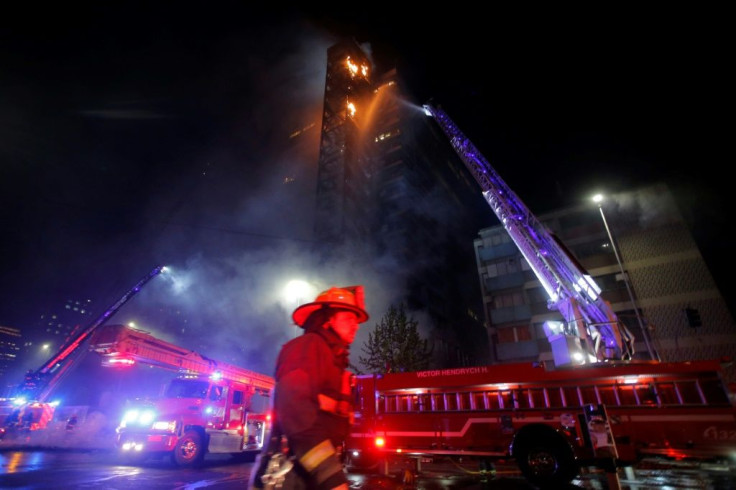
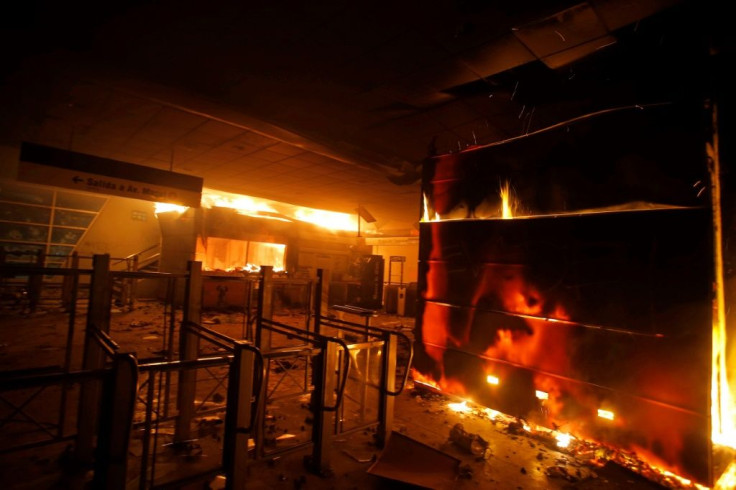
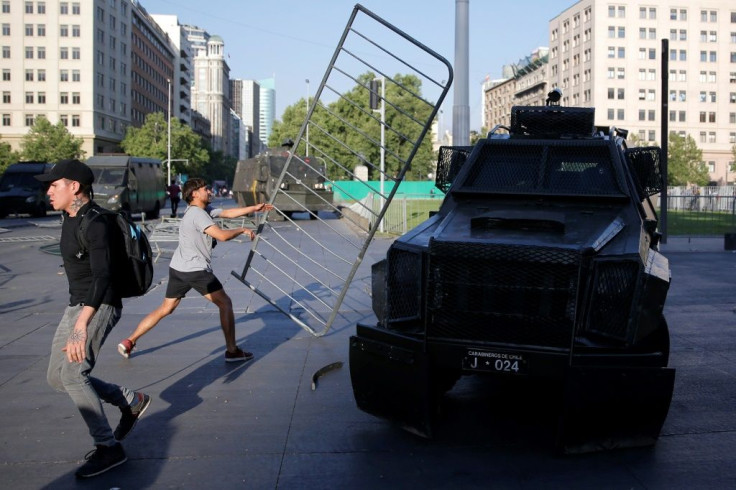
Three parties, including Chile's largest opposition group the Socialist Party, boycotted the meeting, while protesters took to the streets of the capital Santiago and other cities once again, mostly peacefully.
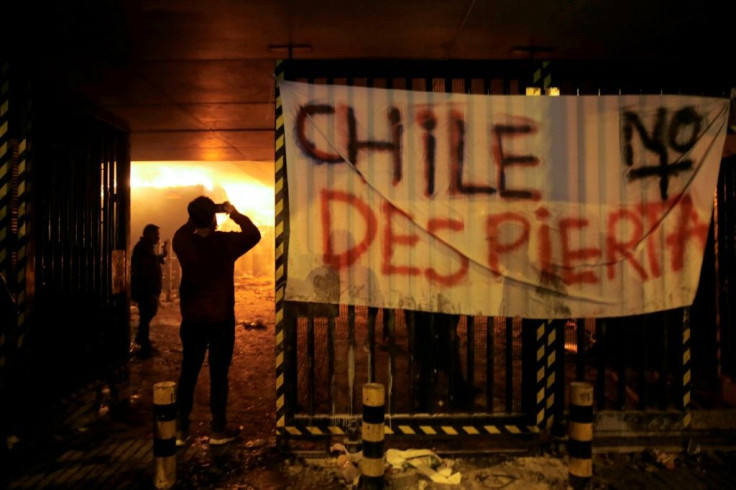
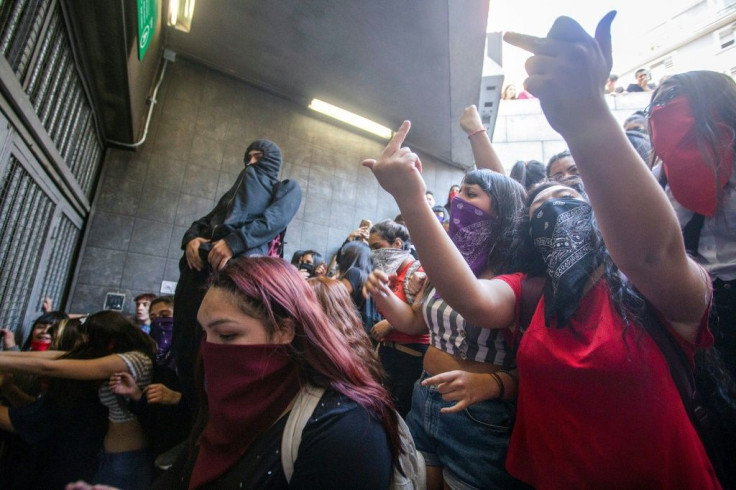
The army announced a night-time curfew -- from 8:00 pm to 5:00 am -- for the fourth day in a row.
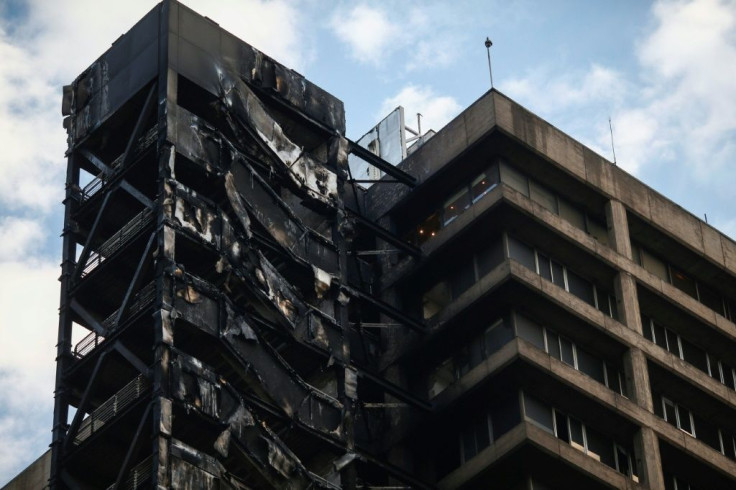
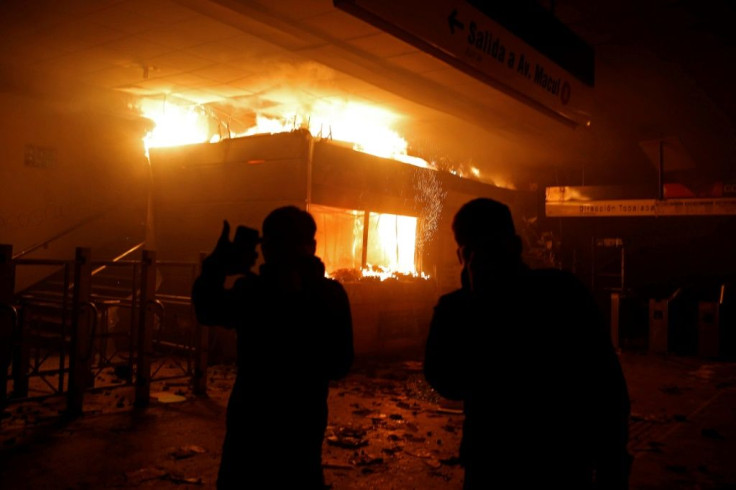
The country's worst violence in decades erupted on Friday, initially triggered by an increase in metro fares.
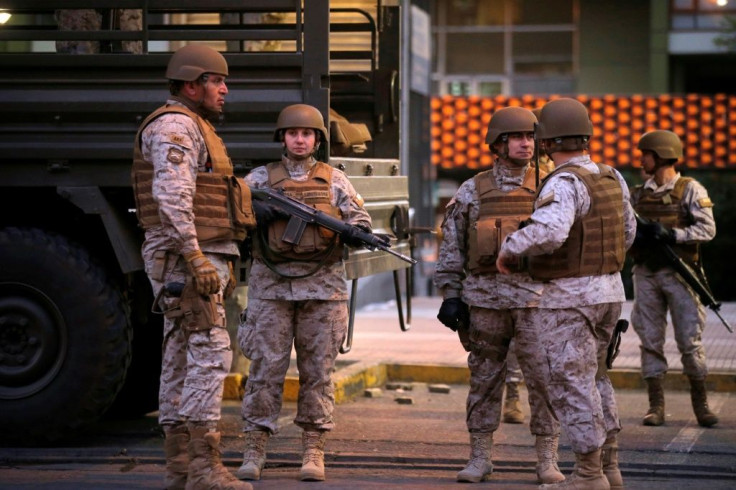
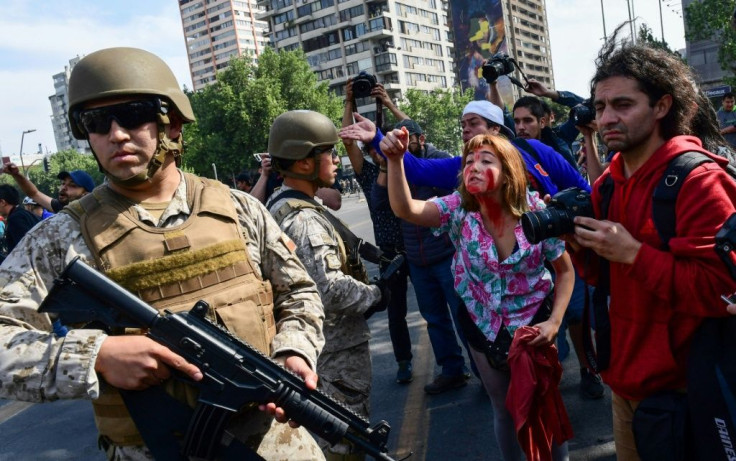
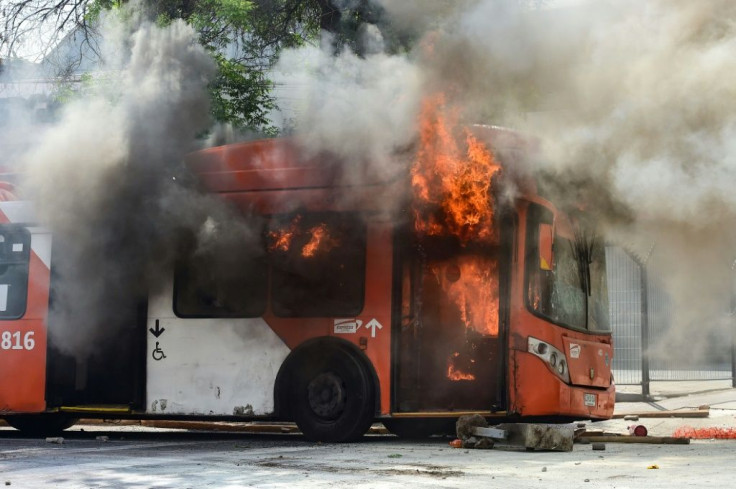
But it has mushroomed into a broader outcry against social and economic woes, including a yawning gap between rich and poor, in a country normally considered one of the most stable in Latin America.
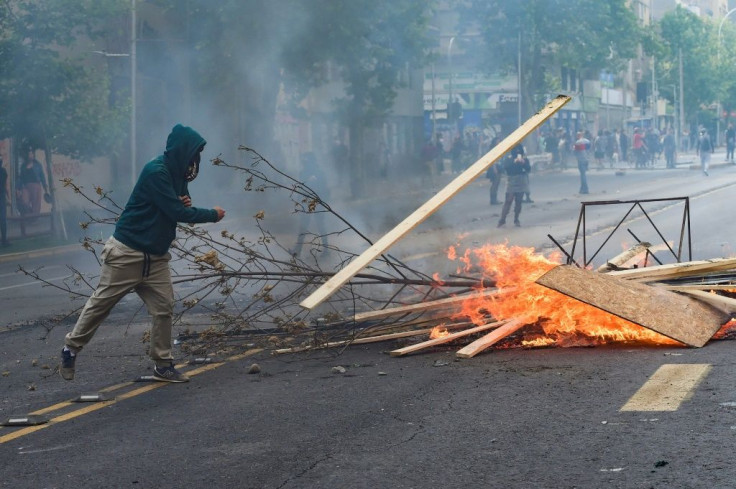
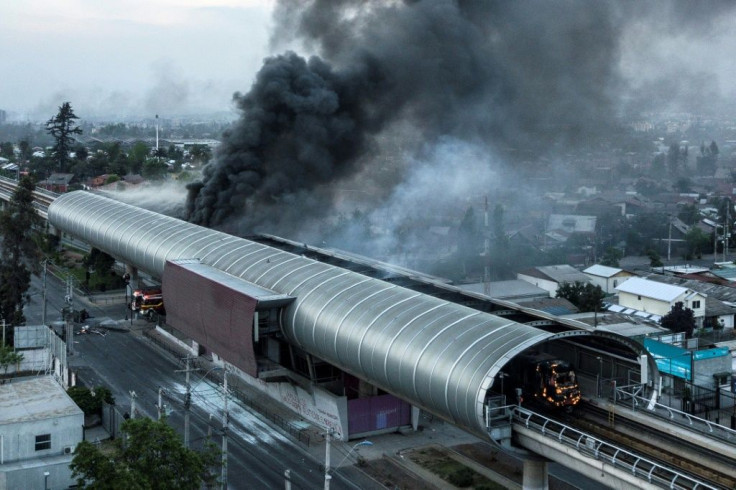
The conservative Pinera declared over the weekend that the country was "at war against a powerful, implacable enemy," and imposed a state of emergency on Santiago and most of Chile's 16 regions.
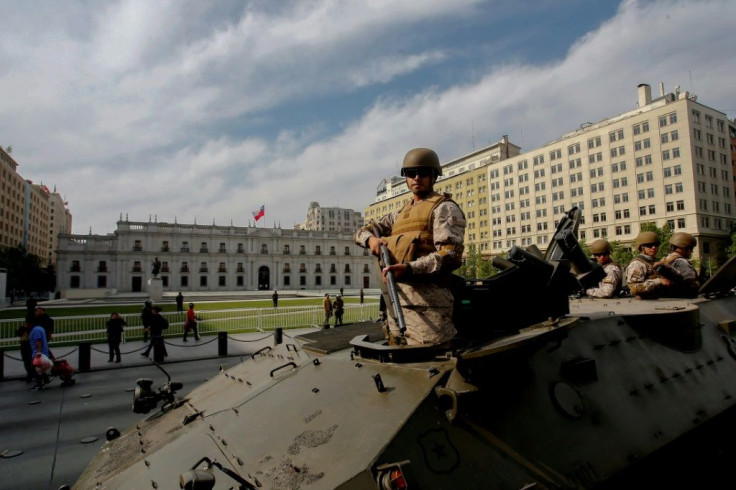
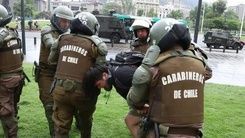
But he adopted a more conciliatory tone on Monday, calling on other parties to join him in trying to find "solutions to the problems afflicting Chileans."
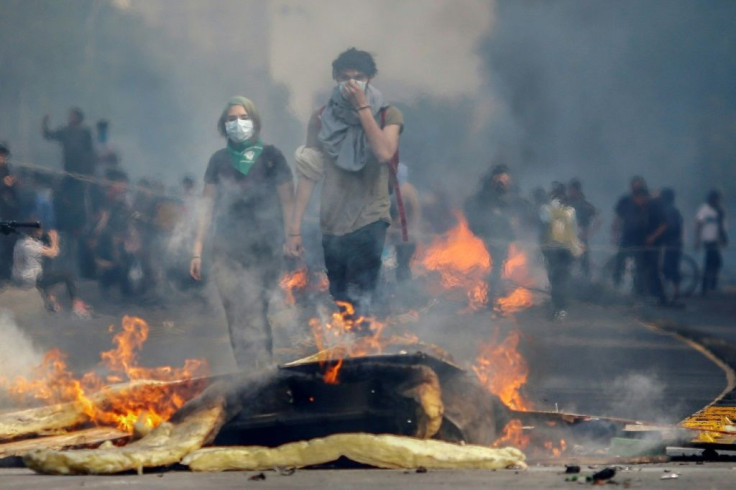
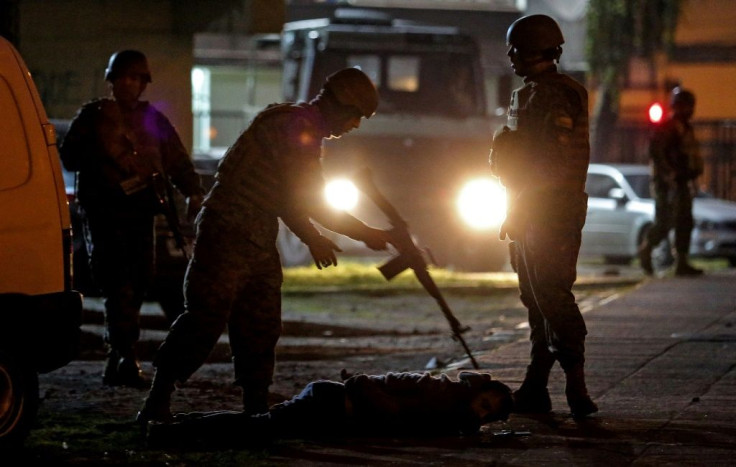
Thousands still gathered peacefully at the Plaza Italia focal point in the capital on Tuesday.
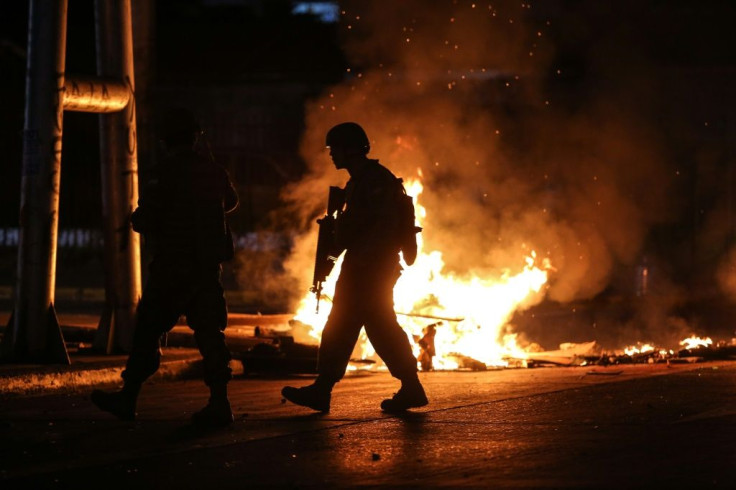
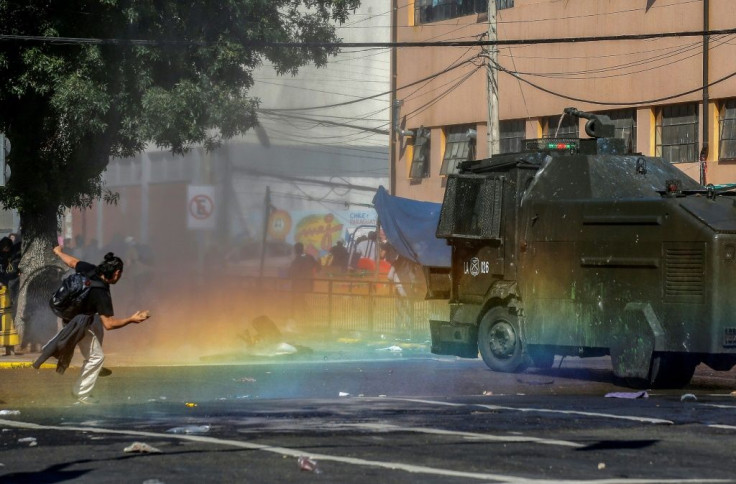
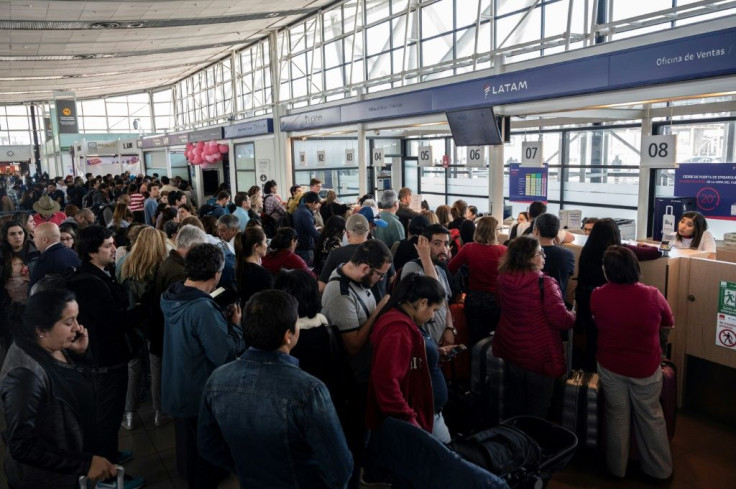
Meanwhile the country's largest union, the Workers' United Center of Chile (CUT) alongside 18 other social organizations, called strikes and protests for Thursday and Friday.
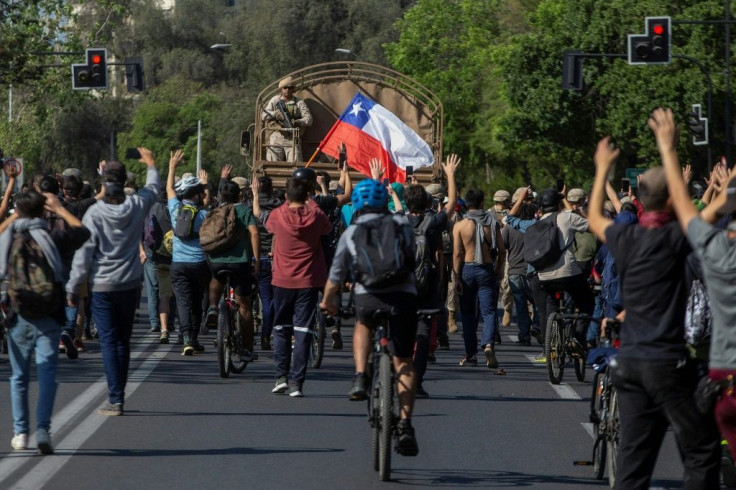
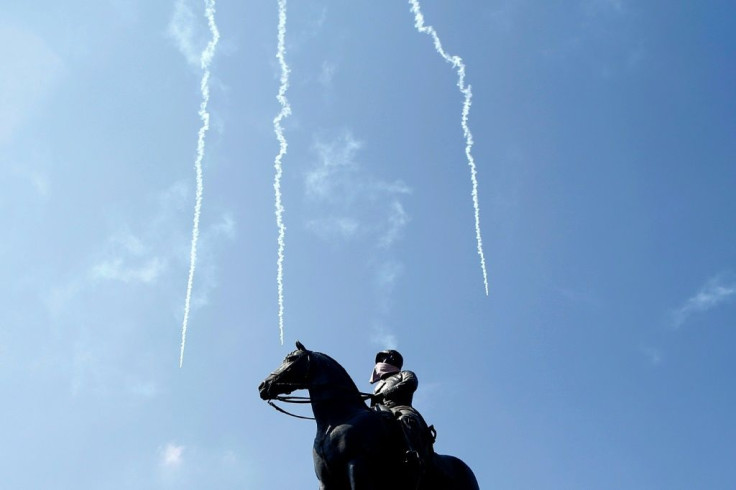
The public health sector workers' union also announced its own plans for industrial action.
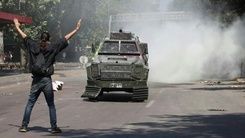
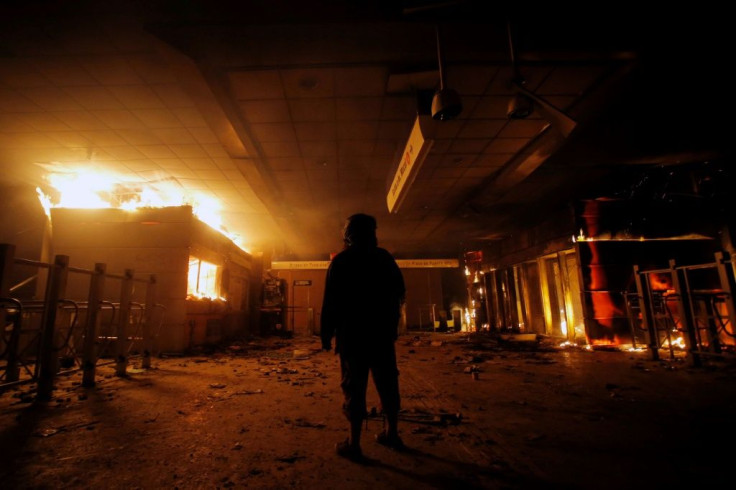
Death toll rises
"The president has listened attentively to various approaches" and will soon propose a new social agenda, Interior Minister Andres Chadwick said after the meeting.
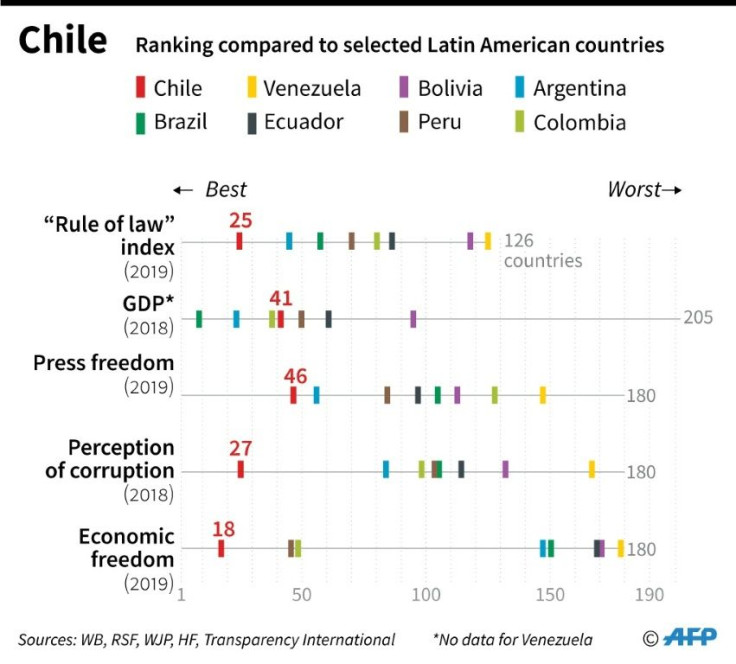
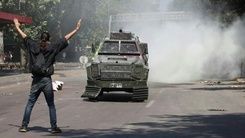
Manuel Monsalve, the president of the Socialist Party, said he had boycotted because it wouldn't be an "open dialogue."
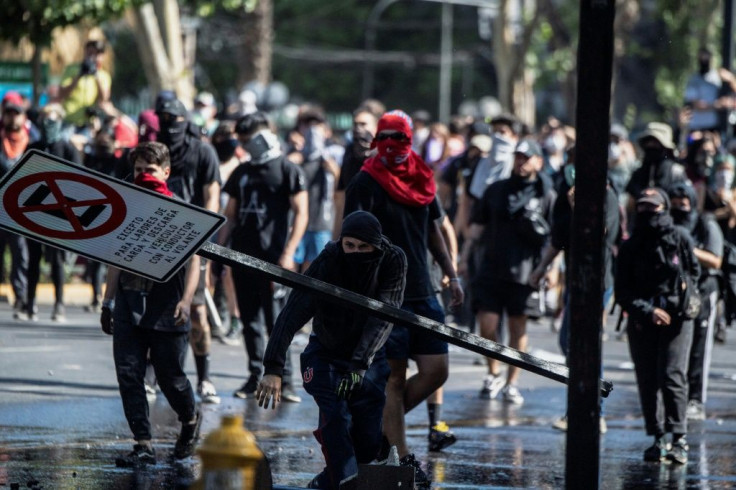
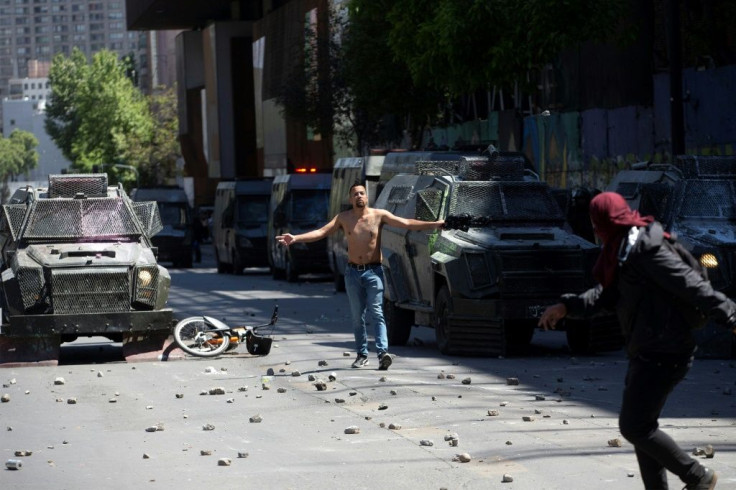
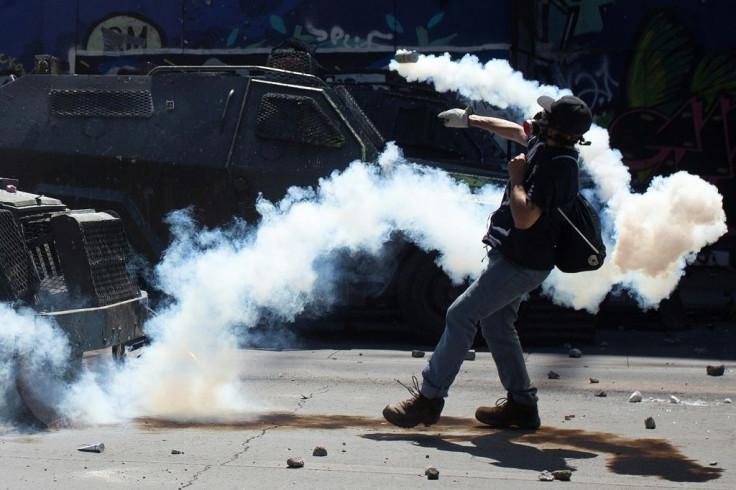
One of Chile's largest conglomerates, Quinenco, decided to act swiftly and promised to increase its minimum salaries to 500,000 pesos ($704) a month from January 1 -- 60 percent more than the current minimum wage of 301,000 pesos.
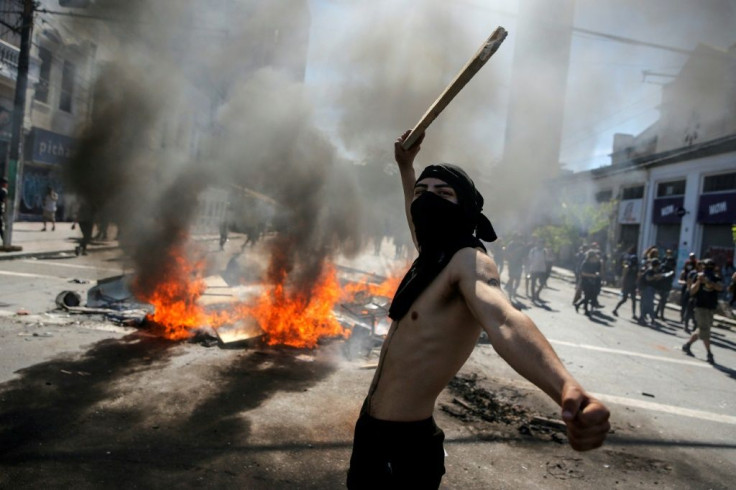
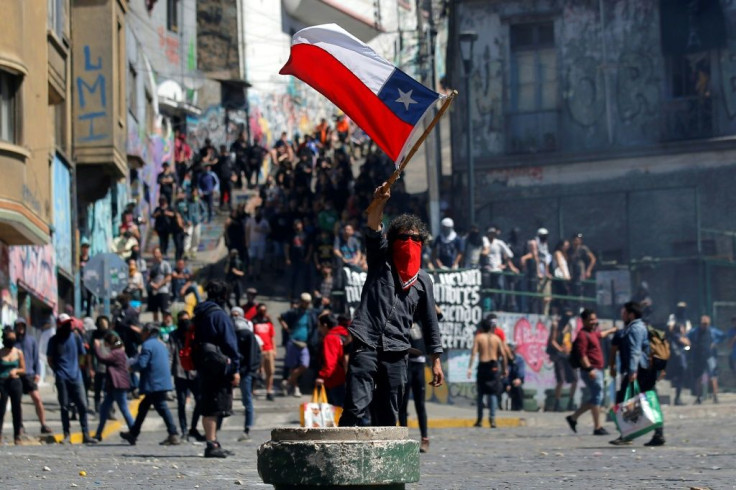
Chile's big business conglomerates are one of the major factors in the huge wealth disparity that has angered protesters.

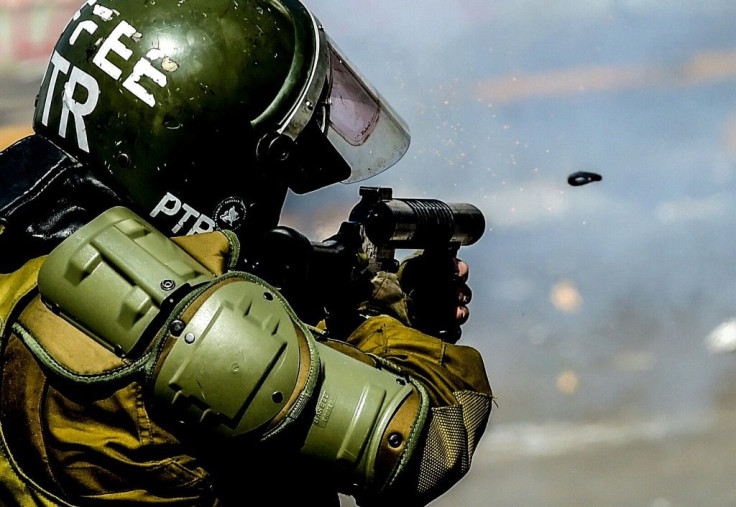
The violence -- with widespread looting, arson and clashes with security forces -- is the worst to hit Chile since it returned to democracy after the 1973-1990 rightwing dictatorship led by General Augusto Pinochet.
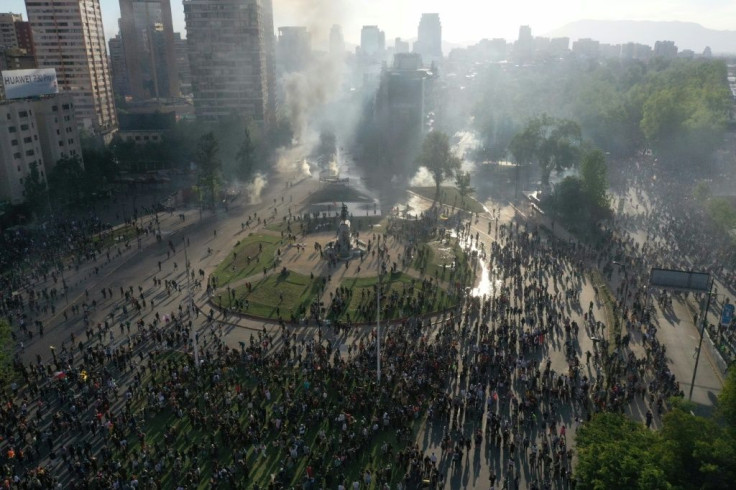
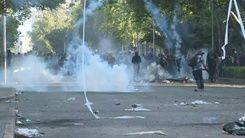
Pinera suspended the metro fare increase on Saturday but violence continued, and some 20,000 police and military troops have been deployed to provide security.
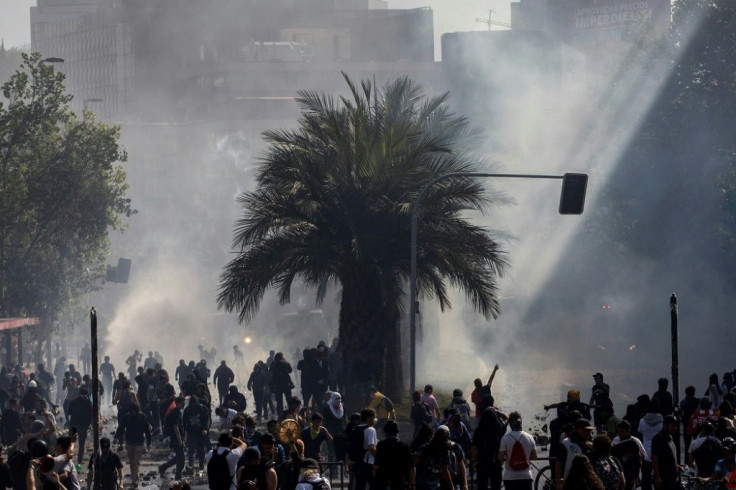
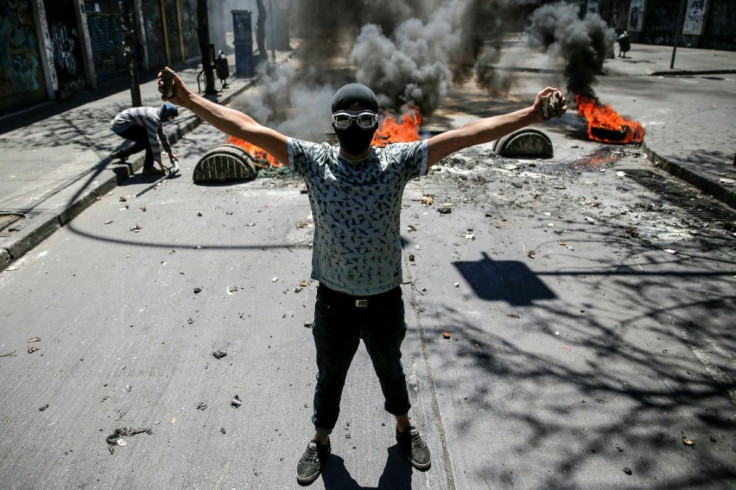
A 55-year-old man taking part in Monday's protests, who gave his name only as Orlando, blamed the protests on low salaries and pensions, waiting lists at hospitals and high prices for medicine, rather than the metro fare hike.
The government started naming some of the dead on Tuesday. Nine had died in fires, one was electrocuted and five were shot, four of those by the security forces.
Eleven of the fatalities were in the Santiago region, while a Peruvian and an Ecuadorian were among the dead.
Chile's human rights institute said more than 200 people had been taken to hospital, almost half with gunshot wounds, while many others suffered eye injuries from pellets.
Since the unrest began, more than 2,600 people have been detained.
Relative calm
Monday night saw a marked drop in violence, which continued on Tuesday. Santiago was largely deserted in the early hours of Tuesday, except for military vehicles and police patrols.
During the day there was almost none of the violence, looting or torching of public property and private businesses that marked the first few days of protest.
In central Santiago, many shops and businesses that were closed on Monday reopened. Commuters and shoppers formed long lines at bus stops and supermarkets.
Only one of the Santiago metro's seven lines -- which normally carry three million people a day -- was operational, although a fleet of 4,300 public buses took up much of the slack.
More than half of Santiago's 136 metro stations suffered heavy damage during last week's protests.
Around 50 schools and 10 universities in the capital remained closed on Tuesday but hospitals and clinics operated normally.
At Santiago's international airport, South American airline giant LATAM brought out deck chairs for passengers stranded by flight cancelations caused by the protests.
Chile's football association said it was suspending its professional leagues for a second successive weekend.
'Pinera out!'
Security forces have used tear gas and water cannon on stone-throwing demonstrators who set up street barricades and lit fires, but there was less of that in evidence on Tuesday.
On Monday, protesters chanted "Pinera Out!" and "Get out military!"
Art teacher Camila Rojas, 29, said protesters had many demands, but "Pinera's resignation is the first thing."
#Pineradictador -- Pinera dictator -- was trending on social media as users denounced violence by security forces.
© Copyright AFP 2024. All rights reserved.





















